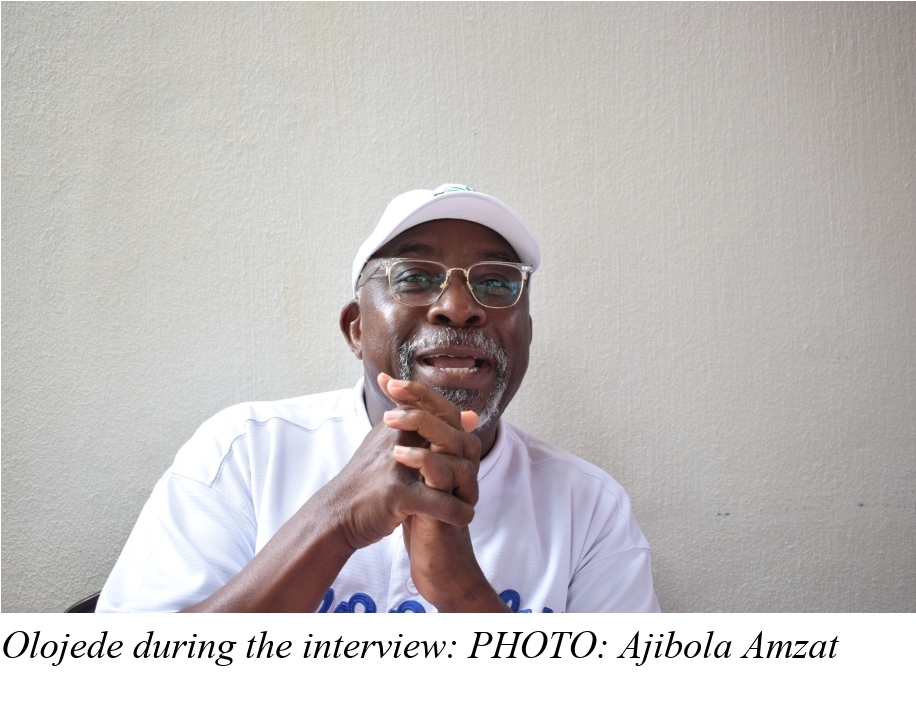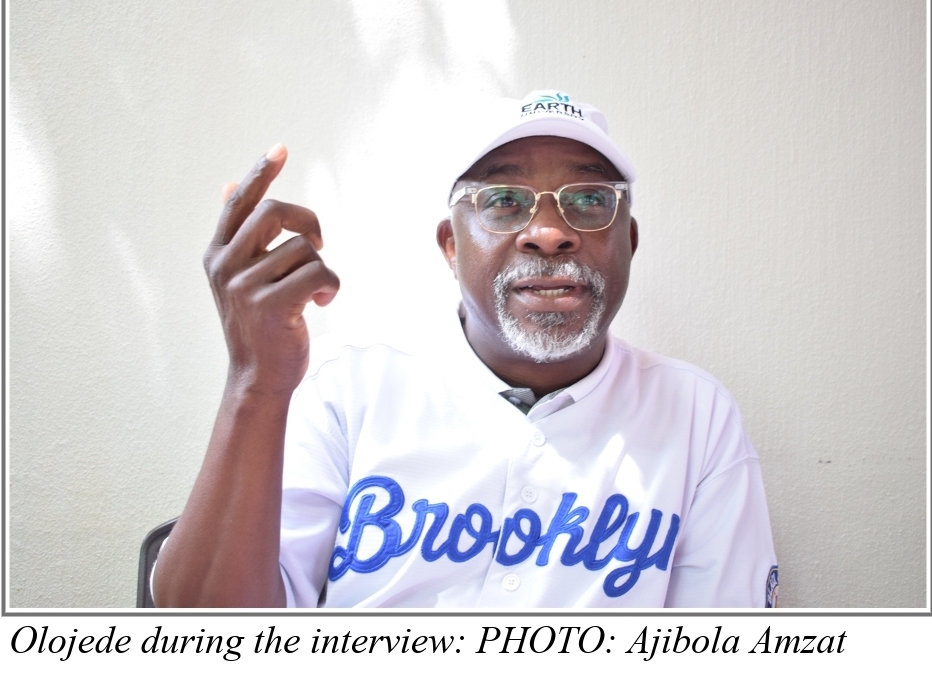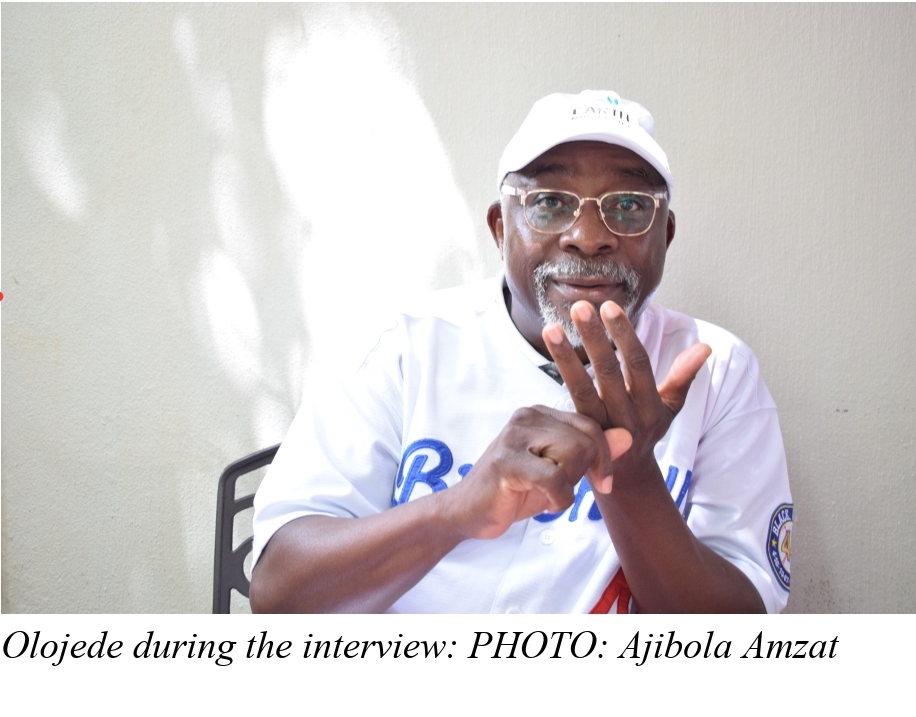Reflections of a Pioneer: Dele Olojede on Journalism, Nigeria, and the Future of Sustainable Media
By Ajibola Amzat
I recently met Dele Olojede, publisher of the defunct 234NEXT newspaper at Stellenbosch University’s Journalism Department. He was there to give a pep talk to Honors students preparing to graduate next year. It was the second time I had met him after the collapse of 234NEXT, the most fearless Nigerian newspaper that exposed the cesspit of corruption in former President Goodluck Jonathan’s government.
234NEXT was also the newspaper that reported with the definiteness of a gospel that the late President Umaru Musa Yar’adua was brain-dead and might not return from his hospital bed to rule Nigeria again. Before then, the President’s men, including pastors and imams, had been lying to Nigerians that President Yar’adua was hale and hearty.
I tried to interview Olojede in the summer of 2016 in New York when he was attending an event organized by Bloomberg, but he was too busy to make the appointment. So, when I met him last month in his current home of Stellenbosch, I seized the opportunity once again.
He agreed to the interview but his assistant, Ingrid Peters, later wrote to me that the interview may not happen until next year. “I did speak to Dele, he has a very busy travel schedule for the remainder of the year and would like to schedule this for mid -January,” she said.
Since I was not planning to be in Stellenbosch at that time of the year, I wrote back to Ingrid asking for just a one-hour interview before Olojede jetted out of South Africa to God-knows-where. The former foreign editor for Newsday already has been to more than 100 countries. Did I get lucky? About 20 hours later, he said ‘Yes’.

So, on a sunny October morning, Olojede and I sat down together at Coopmanhuijs, a boutique hotel with a fine dining restaurant on Church Street. He ordered a light breakfast while I requested a cup of cappuccino. Before our order came, I tried to find out what Olojede has been doing since 2012 when 234NEXT went under right under his watch, and he disappeared from Nigeria’s soil henceforth. He burst into his signature guttural laugh before and gave a terse answer: “Nothing.”
Of course, that response didn’t add up coming from a man who grudgingly gave one hour for this interview because he had several appointments lined up for the day and for the rest of the year.
He got the message. And went to talk about his pet project, Africa in the World. Olojede hosts an annual meeting where thought leaders from everywhere discuss transformative ideas. He also moderates leadership seminars at the ASPEN Institute. The Modakeke man still writes, too, with some of his writings appearing in premium platforms like New York Times, Financial Times and others. Lastly, he is already planning to launch a new magazine to be known as AFAR, a longform writing platform that would take on bigger issues than those affecting Nigeria. But he is not willing to talk about it in detail yet. “It is not ready for speaking about yet,” he told me with a note of finality…It is understandable that he is taking his time to properly set up another journalism project. Once bitten; twice shy. NEXT experience was a classical case of a journalism success story and business disaster.
Many Nigerians, including his colleagues, felt that he should not have shut down the news website, which was gaining steady followership, even though the print edition was losing revenues and bleeding the company to death. Olojede thinks those blaming him for shutting down the website knew little about the condition of Timbuktu Media Limited, NEXT’s publisher.
“Why did you close the website?” I asked him.

“There was a need to make a clean break from something that was not working,” he replied. “It wasn’t working. I lost my investors’ money. I never earned a penny in the five years I spent on building Next. I never paid myself a penny. My wife also worked there, and she was never paid a penny. I got money from investors who lost their money. My staff sacrificed tremendously. You had to call it at one point, and just say you were not extending people’s pain.” So, he pulled the plug, and not even a McNulty grant of $100,000 that came later could make him change his mind. Grants are a positive source of revenue for news outlets that focus on accountability journalism. After all, journalism is a public good.
But the former NEXT publisher doesn’t believe in a news business dependent on donations,
“I don’t like chasing people, asking are you giving us a three-years grant or an 18-month grant?” he said with the confidence of a seasoned scientist. “I believe in the commercially viable model.” He could not prove the viability of this model with his own experiment. Indeed, few outlets except for the examples of The New York Times and success stories of newspapers in India, have been able to do so. In 2008, when he launched 234NEXT, Olojede liked to wax lyrical about India as a great example of places where print newspapers sell like hotcakes and make profit. Years later, he has come to accept that his operating assumption was flawed. Nigeria is not India.
“There was a time when India hit the peak of 6,000 new prints a year,” he said. “That was a factual statement I was making. The error in that assumption was that: Did that necessarily translate elsewhere, like Nigeria?” In retrospect, the assumption turned out to be false.
However, Olojede has so far learnt his lesson the hard way, but will he make a comeback to right all the wrong business decisions he made at NEXT?
“Why should I? Everything is for its own time. I am well in my sixties…That time has passed.”
Olojede believes that young people who worked at NEXT should be the ones trying to recreate such ambitious journalism enterprises: “Most of the people who drove NEXT were in their twenties. All the Tolu Ogunlesis, they were all in their twenties, very bright, high energy, inventive, they know a lot of the news stuff more than I do. Those are the people who need to be building things, not me at my age.”
Indeed, PREMIUM TIMES, a newspaper founded by one of the editors at 234 NEXT, Dapo Olorunyomi, has tried to fill the gap left behind by the avant-garde paper. Since its launch in 2011, the newspaper has also exposed corruption in public office, spotlighted wrongdoing in corporations and documented several cases of power abuses by the ruling class. But Olojede thinks PREMIUM TIMEs could wield much more influence and make enough revenue to sustain its journalism if it remains a purely investigative platform:
“PREMIUM TIMES has only one real chance of going back to quality and long-term viability. And that is to be a pure investigative platform. It should have no business doing daily news, quoting everyone from everywhere, ‘he said, she said.’ Right now, they are trying to be too many things to too many people. That is not the way to go. But again, I am not close enough to the fundamentals to speak definitively about their situation. However, from a distance it seems to me that covering every subject from everywhere is a missed opportunity not to be a purely investigative enterprise.”
Olojede, who now splits his time between South Africa and the United States, expresses deep disappointment that Nigeria continues to flounder despite its abundance of human and material resources. When discussing his home country, he speaks at length. His words are tinged with melancholy, conveying his view that the country remains a challenging environment for a thriving democratic culture and an independent media:
“Nigeria is a real shame for our continent. A real shame. A place of pure predators, and then they claim they are a democracy. The claim is a joke. If you cannot keep people safe and you cannot create condition under which they can care for themselves and their family, and they are too poor and wretched that they are always begging you and saluting you out of their wretched poverty, there is no possible democracy in condition of such extreme suffering, in which people do not have basic security and the capacity to care for their family. Democracy cannot exist in such conditions. To have a functioning media in that place, you have to rethink your mission.”
But Olojede hasn’t completely turned his back on Nigeria. In fact, he remains open to contributing to the country’s rebuilding, particularly if invited by his friend, Naziru El-Rufai. In the past, Olojede served as Chairman of the Board for the Kashim Ibrahim Fellowship during El-Rufai’s tenure as governor of Kaduna State. In that capacity he organized seminars for young leaders in the state government. El-Rufai also encouraged him to draft the inaugural address for the late President Umaru Yar’Adua, including the now-famous line in which Yar’Adua acknowledged flaws in the election process.
“There’s no doubt in my mind that if Naziru were running our country, I’d be there to help him succeed,” Olojede said, adding that he however prefers younger leaders in their forties over septuagenarians or octogenarians in charge of the nation.

This perspective partly explains his lack of enthusiasm for President Bola Tinubu’s administration, as he feels many of its policies are deepening poverty across Nigeria: “There is a major failure when you dramatically increase extreme poverty in your country. It is a failure. Now that doesn’t mean they can’t do a cause correction, and I hope that they do. And I wish them well, because not wishing the Nigerian government well is basically attacking the wellbeing of Nigerians.”
By the time he was done speaking, we had spent 10 minutes past one hour and he was already itching to go keep his other appointments. I could not get him to speak about his love for wine and golf, but I did manage to ask him to offer advice for young investigative journalists.
“When you are starting out, copy like hell and shamelessly from other people’s experience, and geography should not matter that much to young journalists. They should go and do the work wherever opportunity arises.”
We ended the meeting by taking a selfie on the busy street of Stellenbosch before parting ways.
- Ajibola Amzat is the Africa Editor at the Center for Collaborative investigative Journalism, CCIJ. He conducted this interview in Stellenbosch where he is currently undertaking a PhD programme in Journalism.





Comments